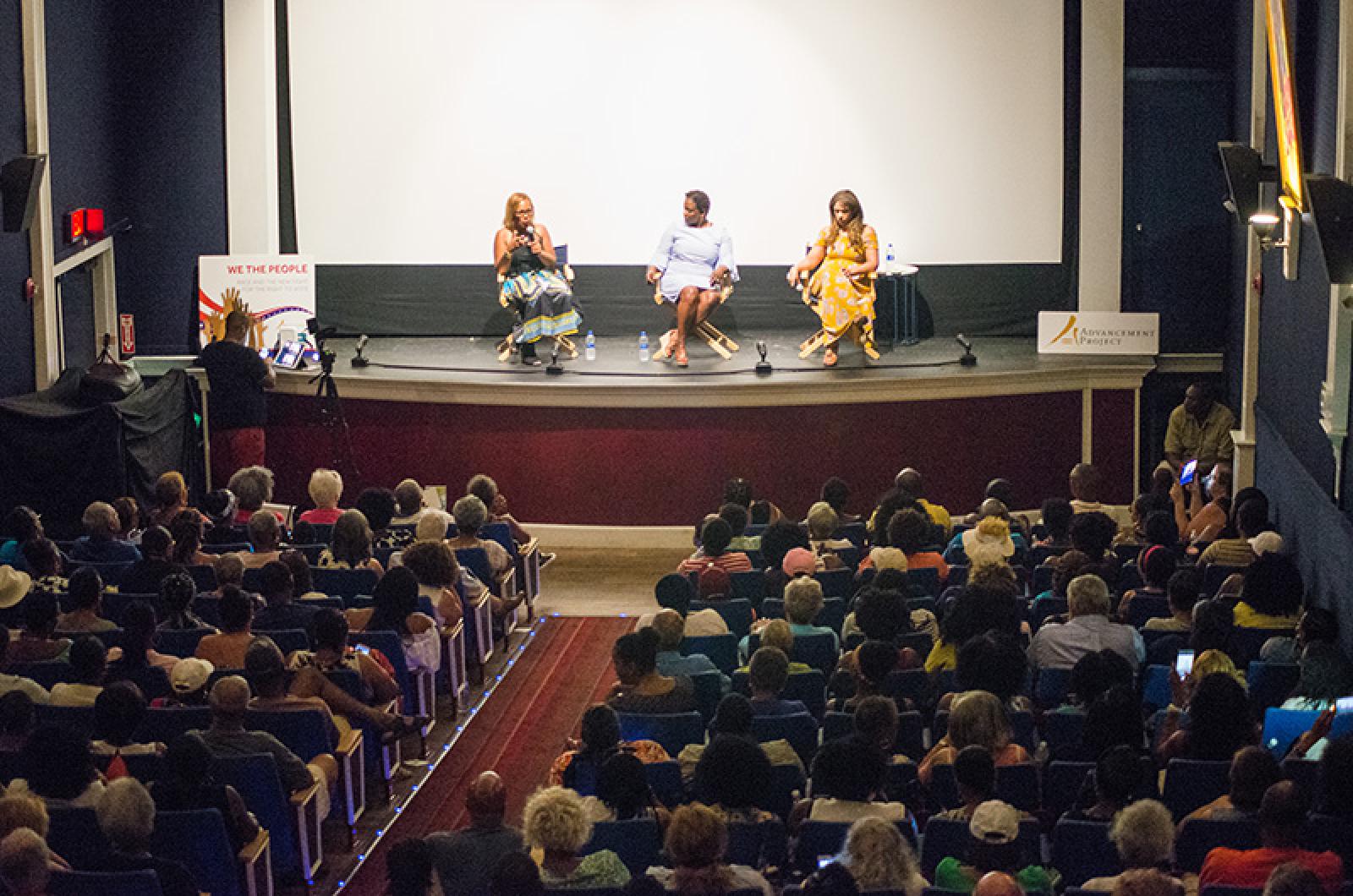A standing room only crowd packed the Strand Theatre in Oak Bluffs to hear a panel discussion on progress in the racial justice movement.
The annual discussion on Martha’s Vineyard was organized by the Advancement Project, a national civil rights organization that works with grass roots movements to eliminate structural racism, according to executive director Judith Browne Dianis.
On the panel were Ms. Browne Dianis, Adrianne Shropshire, executive director of BlackPAC, a political action group dedicated to turning out African-American voters, and Melissa Harris-Perry, a professor at Wake Forest University, writer and former MSNBC television host.
Ms. Browne Dianis opened the discussion with the introduction of a clip from a documentary currently in production. The film is co-produced by actor Jesse Williams and the Advancement Project.
In the clip, celebrities of all races described interactions with police officers demonstrating the sometimes stark differences in the way people are approached by law enforcement conducting traffic stops and other interactions.
Ms. Browne Dianis also noted that the date of the panel discussion, August 9, fell on the fourth anniversary of the death of Michael Brown, an unarmed African-American teenager fatally shot during a confrontation with a white police officer in Ferguson, Mo.
She noted that some things have changed in Ferguson since the shooting which sparked massive demonstrations across the United States, including the defeat, two days earlier, of veteran prosecutor Bob McCulloch, who investigated the death.
“This is because black folks understood the moment and the opportunity,” Ms. Browne Dianis said. “What was happening was literally small grass roots organizations, who got supported by national organizations like Advancement Project and others, really came together to turn out the vote, because they decided Bob McCullough was not going to be in that office any longer. The person who got elected was an African-American man who was on the city council in Ferguson. The community in Ferguson is continuing this fight.”
Ms. Harris-Perry discussed the struggle for racial justice in the era of President Donald Trump.
She said the election of President Trump has forced many to acknowledge the destructive existence of white supremacy groups and their supporters. She said, however, that in a complex America, it is possible to acknowledge bad things, without panic.
“I have a hard time with Trump panic,” Ms. Harris-Perry said. “Trump’s presidency reveals these funky fissures that are not good. I’m not panicked. I do expect the reelection of President Trump, simply because the numbers show me that he is the most popular Republican president with Republican voters, and I have not yet seen the Democrat who has Democrats excited. That does not mean that will stay true. At the same time, I believe there are going to be massive wins, as we’ve already seen, at the local and state level.”
Ms. Shropshire also discussed current politics, from the perspective of a well-funded political action committee (PAC) focused on opposing voter suppression initiatives and turning out black voters.
“I haven’t thought about 2020 since 2016,” Ms. Shropshire said. “The reason is if we’re going to be worried about something we actually should be worried about 2018. We are BlackPAC, there’s not a lot of nuance to it.”
She also said the group’s work looks beyond election day.
“Election day isn’t the end of your participation,” Ms. Shropshire said. “Actually your participation should begin on election day, because what we’re actually engaged in is the work to make sure the issues that are going to change and transform our lives, actually get developed into policy, actually get developed into law. That doesn’t happen on election day.”
The panel discussion was the sixth event organized on Martha’s Vineyard by the Advancement Project.




Comments
Comment policy »